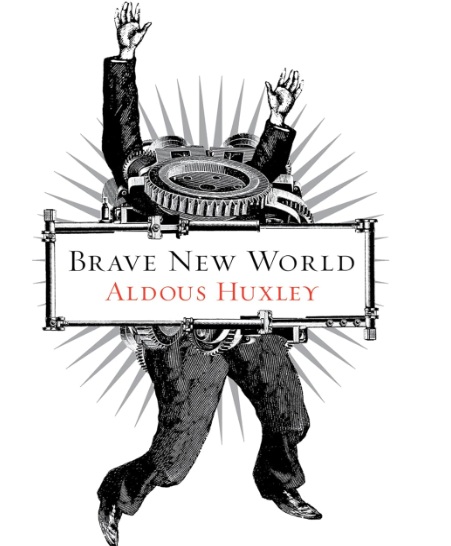
We are entering an era in which data has become the new fuel of society. From smart meters and digital twins to algorithms that predict our consumption and behavior, the data-driven society is increasingly replacing the industrial society. Where energy and machines once stood at the center, data and computational power now dominate. But what does this mean for freedom, power, and democracy? To explore this question, we can turn to four different lenses: the literary imagination of Aldous Huxley (Brave New World), the critical theory of Jürgen Habermas, the systems theory of Niklas Luhmann, and Marshall McLuhan’s famous dictum the medium is the message.
Brave New World: comfort and control
Huxley’s Brave New World (1932) depicts a future in which stability and happiness outweigh freedom. People are genetically engineered, socially conditioned, and artificially satisfied with soma. Soma is the ever-present drug that guarantees happiness and compliance, making discontent and resistance almost impossible. Autonomy and critical thought disappear, but nobody seems to mind: comfort and convenience prevail.
The parallel with today’s data-driven society is striking. We willingly trade autonomy for ease of use. Recommendation engines, smart navigation, and automated thermostats make decisions for us, often invisibly. Just as soma ensured compliance in Huxley’s world, data quietly powers conformity and docility in ours.
Habermas: colonization of the lifeworld
Jürgen Habermas famously distinguished between system (power, money, institutions) and lifeworld (citizens, culture, communication). His concern: the system tends to colonize the lifeworld, eroding the space for free, democratic dialogue.
In a data-driven society, this risk is palpable. Algorithms and dashboards increasingly substitute public debate. Policy decisions are legitimized with the phrase “the data shows…,” while citizens lose influence over the definitions, filters, and models behind that data. From Habermas’s perspective, the logic of data is colonizing the lifeworld and silencing communicative rationality.
Luhmann: functional observation
Niklas Luhmann, by contrast, approached society as a web of functionally differentiated systems (economy, law, politics, science), each operating with its own binary code (e.g., economy: payment/non-payment; law: legal/illegal). For him, data enhances systems’ capacity for observation and self-reproduction.
From this viewpoint, data is not an intruder but a reinforcer of systemic autonomy. Law can become more efficient through predictive policing, the economy operates in real time through fintech, and medicine predicts disease risks through big data. The cost: human values such as freedom and equality fall outside the system’s operational logic and are sidelined.
McLuhan: the medium is the message
Marshall McLuhan’s well-known phrase the medium is the message adds another dimension. It reminds us that the form of communication itself shapes social life. The rise of data platforms and algorithms is not just about the content they deliver (recommendations, statistics, predictions), but about how these digital infrastructures restructure relationships, perception, and even thought itself.
In a data-driven society, the medium of “data flows” becomes the decisive force: continuous tracking, automated feedback loops, and algorithmic nudges redefine what counts as knowledge, truth, or relevance. The message is no longer just information; the medium of data circulation itself changes the conditions of human life.
Four perspectives on the data-driven society
The following triangle (or more precisely, tetrahedron if McLuhan is added) summarizes these perspectives:
- Huxley (Brave New World) → illustrates the dangers of comfort and stability eclipsing freedom.
- Habermas → provides the normative critique: data-driven systems colonize the lifeworld and weaken the public sphere.
- Luhmann → offers the descriptive lens: systems use data to observe and stabilize themselves.
- McLuhan → highlights how the very medium of data reshapes the structure of society, regardless of content.
Together, they show that the data-driven society simultaneously brings comfort and efficiency and risks of democratic erosion, loss of autonomy, and deep cultural transformation.











